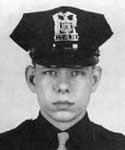On August 17, 1970, an Omaha, Nebraska policeman, Larry Minard, was murdered in an ambush bombing at a vacant house. Two men, Edward Poindexter and Mondo we Langa (formerly David Rice), are serving life sentences at the Nebraska State Penitentiary for his killing. The pair were leaders of Omaha's chapter of the Black Panther Party. Most people assume justice was done in the case and little effort has been made by the news media to dig into the hidden aspects of the crime.
Poindexter has a new trial request pending before the Nebraska Supreme Court and an examination of the record, much of it still hidden by Federal Bureau of Investigation censors, reveals a dozen reasons to question the outcome of the trial.
New Trial Reason Five: Raleigh House, the dynamite supplier who walked free
The official version of the case, testified to at the preliminary hearing and at trial by Duane Peak--the confessed bomber, is that Raleigh House, a Black Panther member, supplied the dynamite that killed Larry Minard.
House never faced formal charges for supplying the explosives. Out of the 13 people arrested while Peak was at large during the first weekend after the bombing, one suspect was released after just one night in jail--Raleigh House. Even more unusual, House did not have to post $10,000 bail like some of the others; instead, he was released on his own recognizance. Police told the Omaha World-Herald that House was ordered released by assistant prosecutor Arthur O'Leary, the man to whom truth does not matter that would soon thereafter question Peak about the crime.
House suspiciously shows up twice more; in testimony to a congressional committee, and in a clandestine FBI memo about the Omaha Panther activists. Federal agents and Omaha police had recruited informants within the Black Panther group as part of the campaign to disrupt the organization.
House was listed as an officer of the local Panther group on an Omaha police memo provided to Congress, but when police captain Murdock Platner testified before the U.S. House Committee on Internal Security, the role of House as supplier of dynamite was dropped and Mondo we Langa was falsely cited as the source instead of House.
House's name also appears on a secret memorandum from the Omaha FBI office to J. Edgar Hoover dated August 15, 1970 just two days before the fatal bombing. Redactions by FBI censors do not make House's inclusion in the secret memo completely clear. A plan to discredit Ed Poindexter and the Omaha chapter of the Black Panthers with a bogus letter addressed to David Hilliard at national headquarters was being proposed and Hoover's permission was sought. House is cited as a source of a previous letter to the Black Panther Party newspaper.
Regardless of House's role in bogus letters, mention of his name by the FBI to Hoover just two days before Minard's killing is not likely to have resulted in such easy get-out-of-jail-free treatment the following week unless he was an informant.
The Nebraska Supreme Court justices reviewing Poindexter's appeal will no doubt recoil at the idea that Minard was killed with explosives supplied by a police informant but cannot escape the reality that House walked free despite Peak's testimony he supplied the dynamite.
New Trial Reason Six: The unknown dynamite arrests of three men--cases dismissed
On July 28, 1970, three weeks before the ambush bombing that killed Larry Minard, a car with three young men was stopped in Omaha and found to have several dozen sticks of stolen dynamite. Luther Golden Payne, Lamont Mitchell, and Conrad Delano Gray were arrested and charged with possession of explosives.
News of the arrest was withheld from the public by cooperative reporters. The Omaha World-Herald had regular access to the fourth floor squadroom at police headquarters where the arrest logs were daily made available to crime beat reporters.
(Note: You can view every article as one long page if you sign up as an Advocate Member, or higher).





